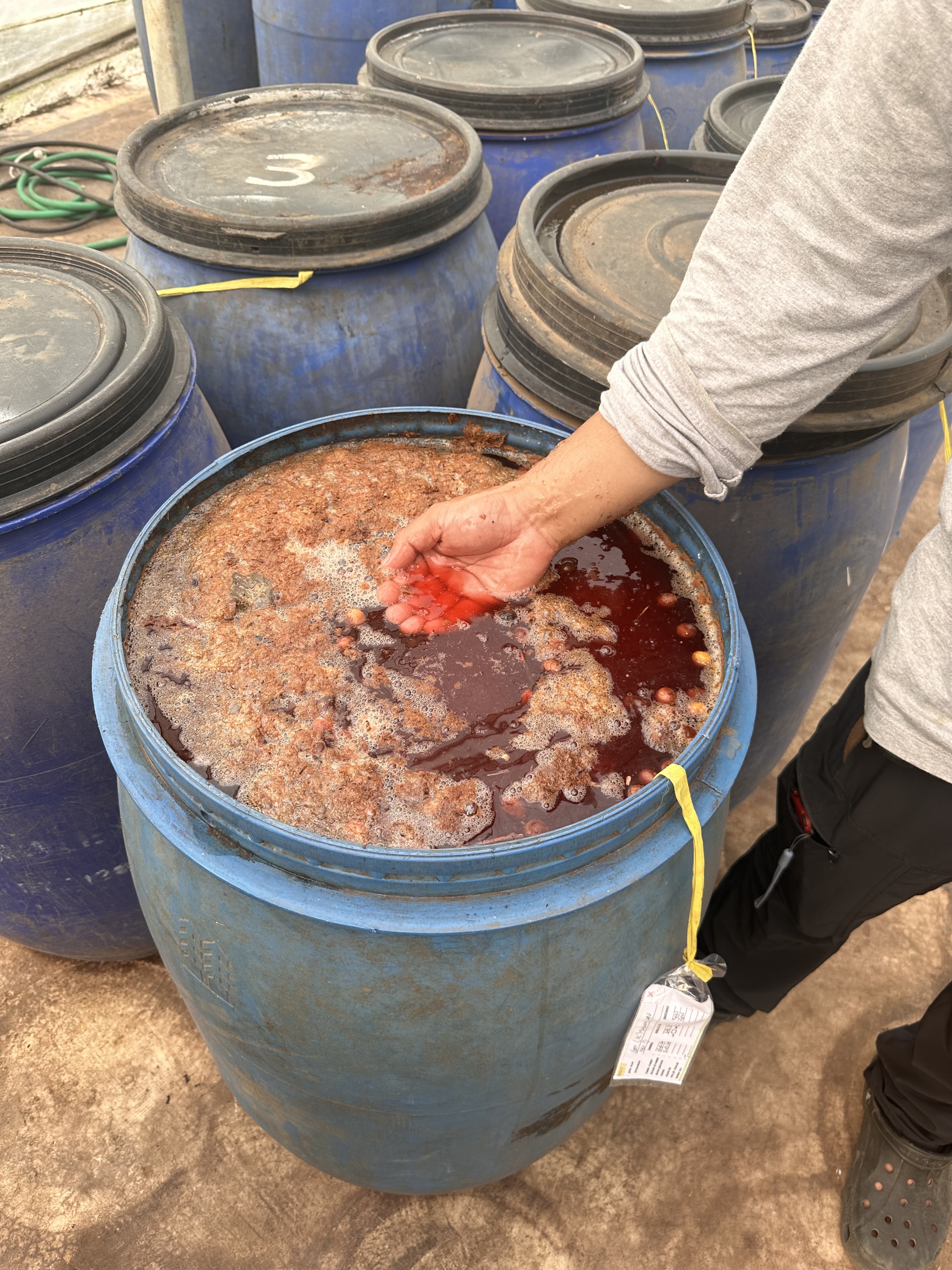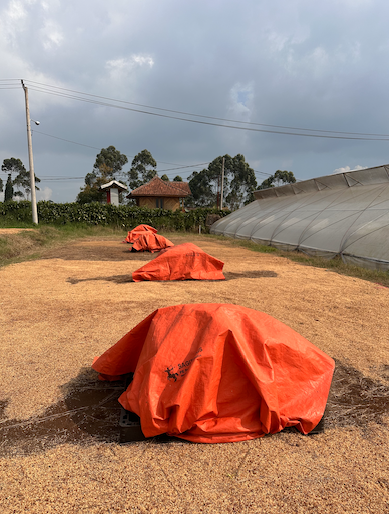What is Coffee Fermentation
Coffee fermentation begins as soon as the cherries are picked. Its purpose is to break down the sticky mucilage surrounding the bean, influencing how flavour develops during post-harvest processing. Fermentation can occur in two main ways: when cherries are left whole, it happens naturally inside the fruit, which is less controlled; or after depulping, where the beans are fermented in a controlled environment, allowing producers to better guide flavour development. Unlike wine or beer, the goal is not to produce alcohol, but to clean the beans and help flavours evolve.

The difference between fermentation and other processing steps
Fermentation is just one stage in post-harvest processing. It typically comes after depulping (in washed or honey processes), or alongside drying (in natural processes). Once fermentation is complete, beans are washed (if needed) and dried. While fermentation happens naturally, it can be guided, by controlling temperature, oxygen levels, or the use of sealed tanks. Some producers also use “inoculation” by adding specific yeasts or microbes to influence the outcome.
Learn more about experimental fermentation coffee here.
Fermentation in Specialty vs. Commercial Coffee
In commercial coffee, fermentation is often more uncontrolled or designed for efficiency and not for flavour. Over-fermentation or inconsistency is common, and defects like sour or dirty cups can be a result.
In specialty coffee, fermentation is more deliberate. Time, temperature, and method (aerobic vs anaerobic) are often adjusted to enhance or protect specific flavour notes. The best results show up as clarity, balance, and unique character, not funk or noise. That said, “fermented” is not a flavour in itself. The goal is not to taste the fermentation, but to highlight the inherent qualities of the coffee through careful microbial action.

Where Nordic Approach fits in
We ask our suppliers detailed information about how each coffee is fermented , including duration, temperature, method, and container. But our primary evaluation is still cupping as if the result is clean, expressive, and representative of the origin and variety, we’re open to different fermentation styles. We don’t chase experimental fermentation for the sake of novelty. Instead, we support producers who approach fermentation with intention and consistency, because that’s what ultimately benefits cup quality and traceability.

